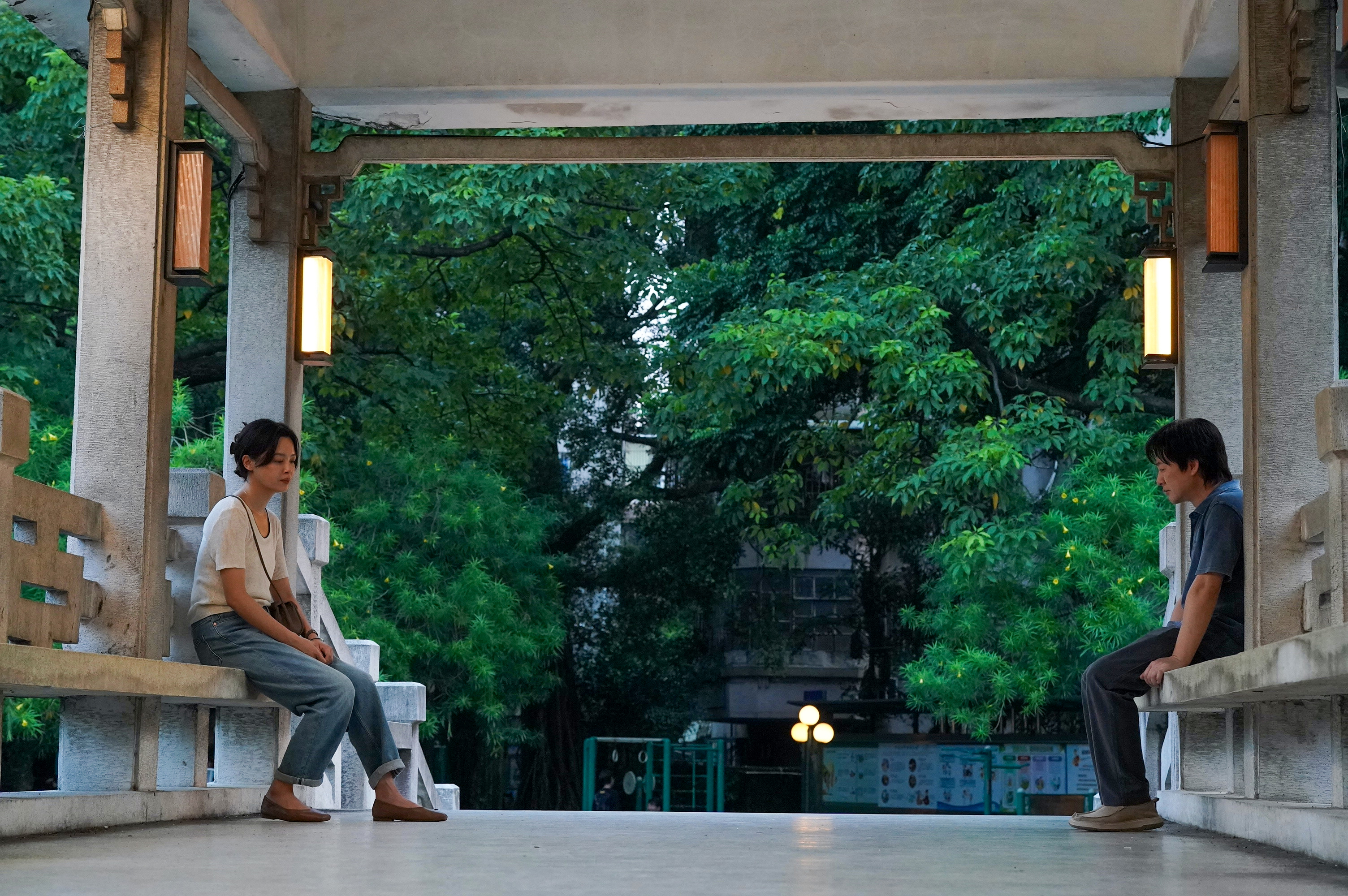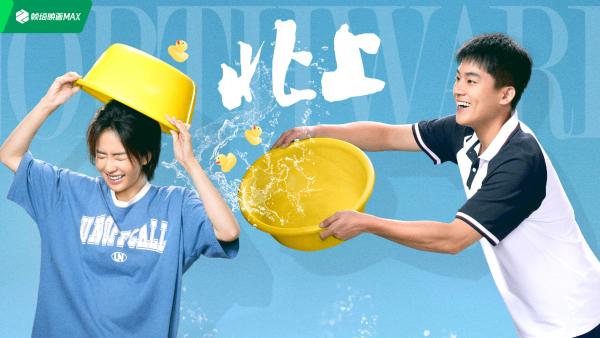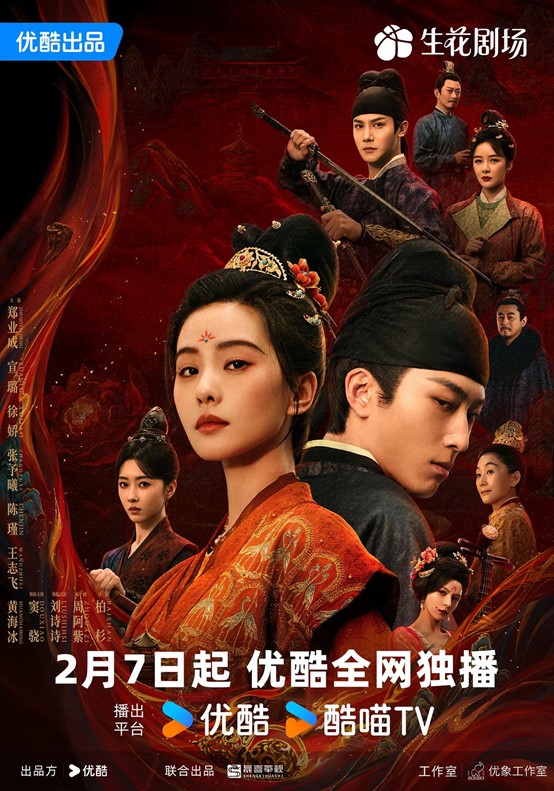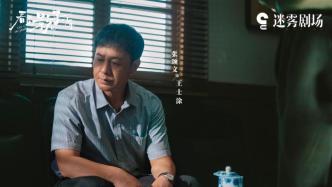
Note: This article contains minor spoilers
iQiyi is having some bad luck these days. While its competitors Tencent Video (Joy of Life 2, Story of Rose) and Youku (Mo Yu Yun Jian) have hits, iQiyi's S+ drama Fox Spirit Matchmaker suffered a rare Waterloo, causing the industry to doubt iQiyi's vision in selecting dramas. The timely launch of The Boy Who Can't See His Shadow (hereinafter referred to as The Boy Who Can't See His Shadow), starring Zhang Songwen and Rong Zishan, by Misty Theater has a bit of a "rescue" flavor.
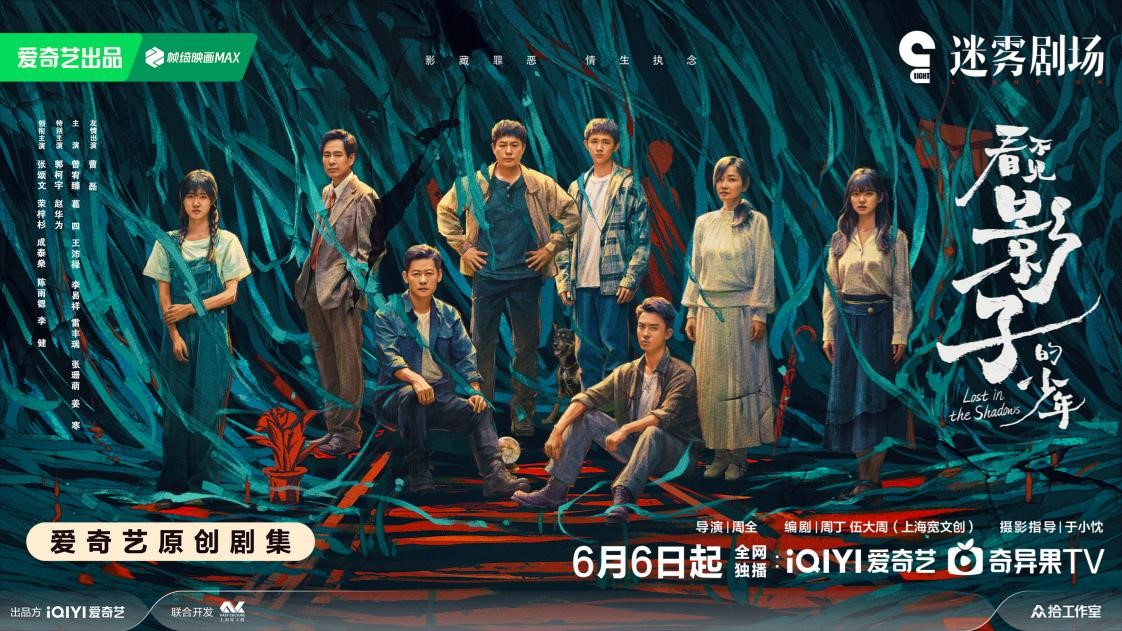
Poster of "The Boy Who Can't See Shadows"
But it's a pity that despite the collaboration between Zhang Songwen and Rong Zishan after the high-scoring drama "The Bad Kids", and the gimmick of "the reunion of the "Kuaishou" trio", "Shadow Boy" performed mediocrely, and its highest popularity value when it went straight to the finale did not even break through "The Unspeakable", the first drama of the Misty Theater this year, which had mediocre reputation and popularity.
What happened to Misty Theater and iQiyi? While analyzing Shadow Boy, we can also get a glimpse of the whole picture.
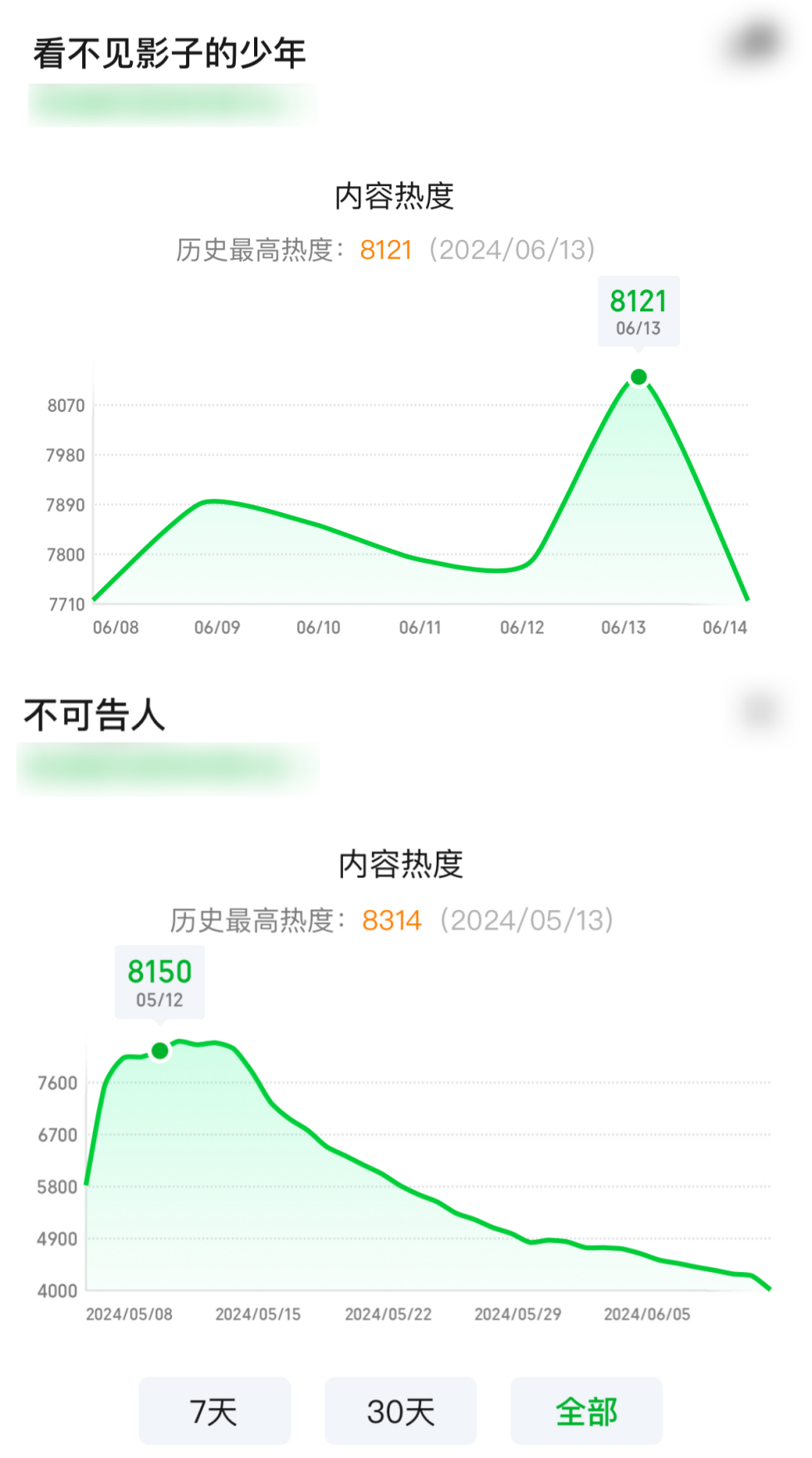
The 16-episode "The Boy Who Can't See His Shadow" and the 12-episode "The Untold Story" were the hottest shows of the night.
"Misty Theater" is a pioneer in the field of suspenseful short dramas. Through precise theatrical operation, strict content quality control, standardization requirements, and centralized release of similar high-quality content, it has successfully created a high-quality, typified brand, providing strong support for the membership system and payment model of long video platforms. After the Misty Theater, Tencent Video now also has the "X Theater", and Youku has also upgraded the previously large and insignificant suspense theater to the "White Night Theater" this year. It can be said that the Misty Theater has made an indelible contribution to promoting the diversified development of the industry's content forms.
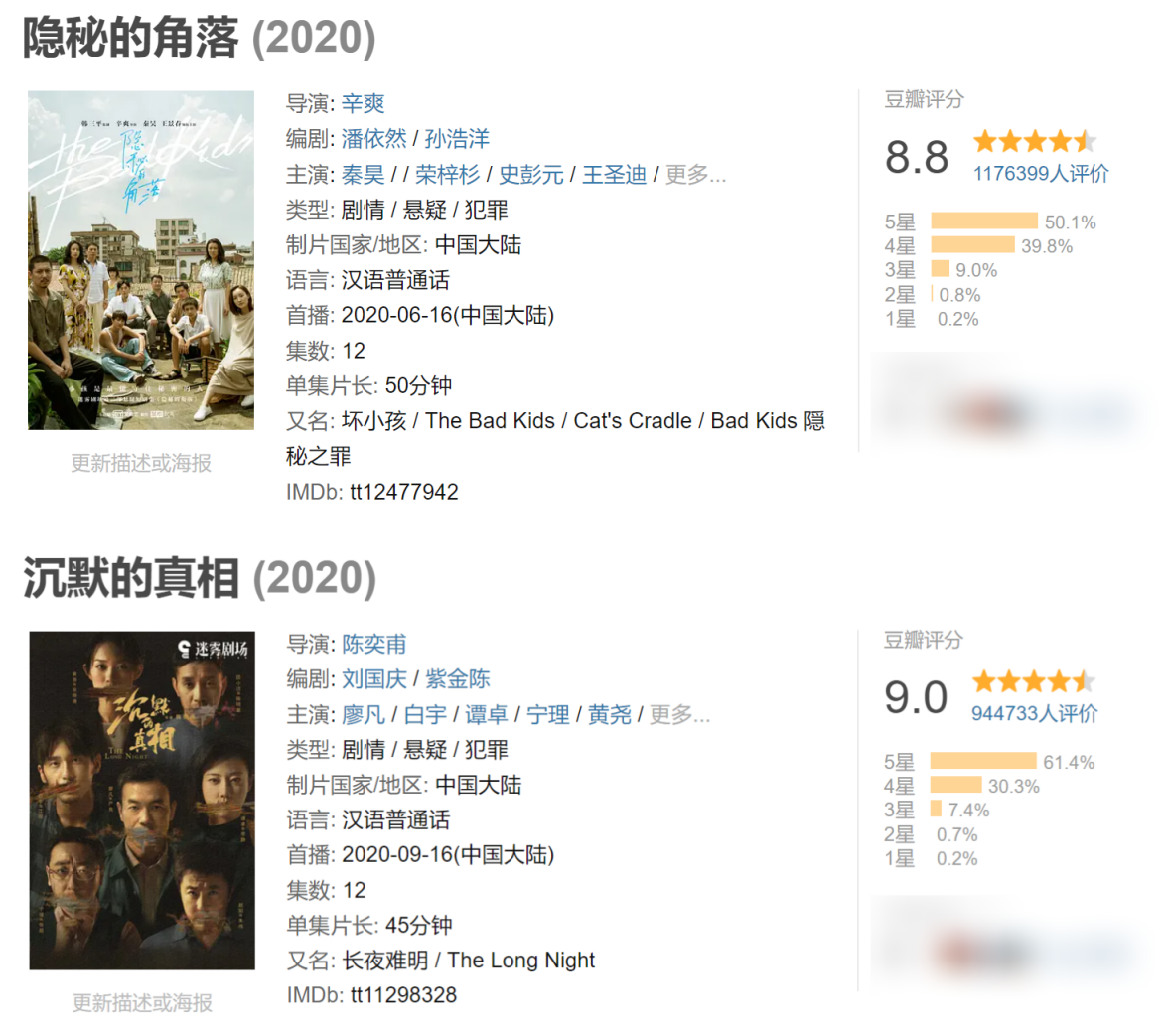
The well-received and popular "The Hidden Corner" and "The Silent Truth" have made the brand of Misty Theater famous.
Although X Theater has highly acclaimed works such as "The Long Season" and "Under the Bustling City", and White Night Theater's "New Life" has also been a success, the brand influence of Misty Theater is still the greatest, both because Misty Theater has been in operation for the longest time and because it has launched the most plays. In 2020, from the first "Ten Day Game" to "Shadow Boy", Misty Theater has launched 16 works.
The performance of "The Bad Kids" and "The Silent Truth" has not been surpassed so far, and the rest of the dramas can be roughly divided into the following four categories. The first category, the reputation and popularity are good, but not yet at the level of being enshrined in the gods, such as "The Thirteen Years of Dust"; the second category, there is reputation but no popularity, "Moses on the Plain" is the least popular drama in the Mist Theater; the third category, the popularity is good but the reputation is average, such as "Who is the Murderer", "The Daughter Who Came Back" and "Echo"; the fourth category, there is neither popularity nor reputation.
When iQiyi was producing hit dramas frequently, Misty Theater performed fairly well and the problems did not seem serious, because hit dramas could keep paying members. Once iQiyi's big dramas encountered problems frequently, X Theater and White Night Theater came on strong, and Misty Theater no longer had any well-received hit dramas, how could the platform retain its members?
To be fair, "Shadow Boy" is not a bad play, it is roughly the average level of the Misty Theater. It also embodies the common problems of the Misty Theater's repertoire - both the content and the form are deviated.
"Shadow Boy" revolves around the "disappearance" of two teenagers. In 1993, the teenager Bian Jie (played by Rong Zishan) disappeared unexpectedly; in 1996, a teenager Xiao Qi (played by Rong Zishan) who looked almost exactly like Bian Jie returned home as Bian Jie. He soon discovered that this reconstituted family was full of strange things. For example, his father Jin Manfu (played by Cheng Taishen) had long discovered that Xiao Qi was not Bian Jie, but asked him to play Bian Jie... Where did the real Bian Jie go?
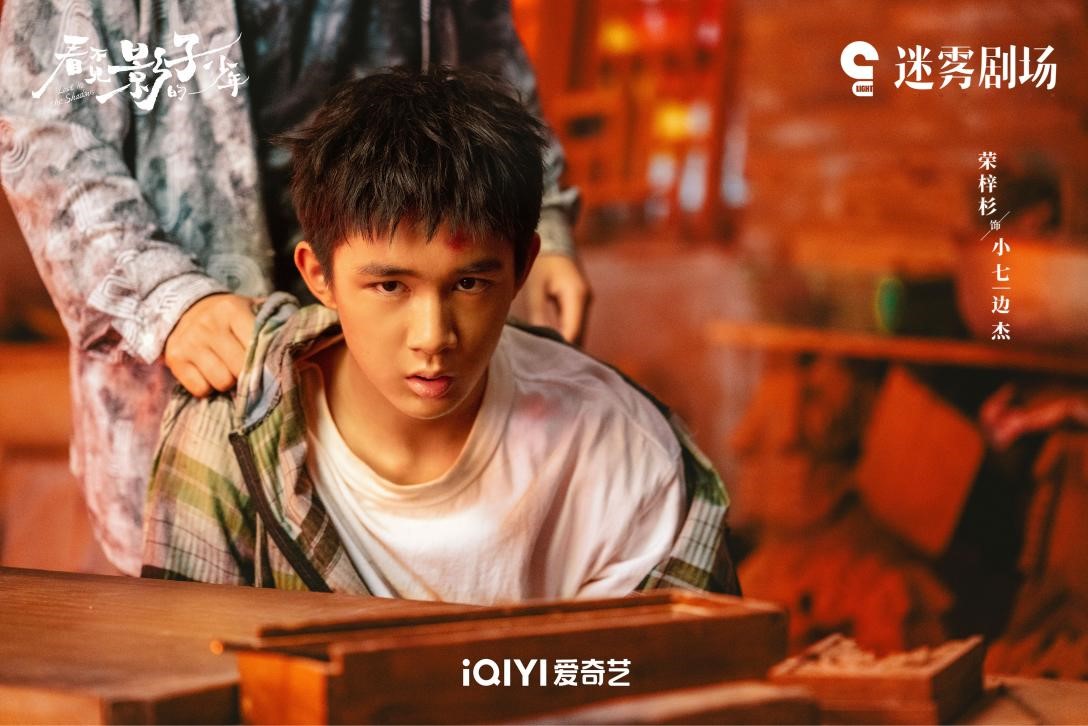
Bian Jie and Xiao Qi look almost identical, both played by Rong Zishan
Criminal policeman Wang Shitu (played by Zhang Songwen) intervened in the investigation of Bian Jie's disappearance three years ago. He is particularly concerned about the disappearance case because of his personal experience. In 1984, his 5-year-old son Doudou was abducted and has not been found yet. At that time, Doudou and Bian Jie were playing hide-and-seek. The traffickers were actually going for Bian Jie, but they abducted Doudou by mistake. Where did Doudou go? Who wanted Bian Jie to disappear in the past?
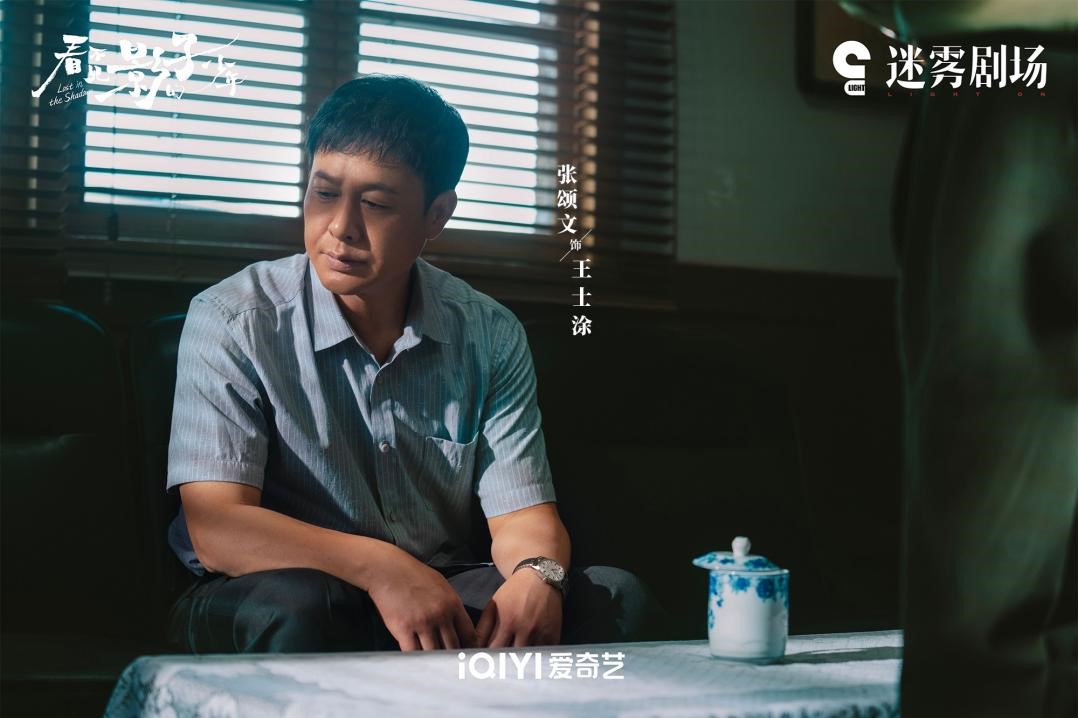
Criminal policeman Wang Shitu (played by Zhang Songwen), he is also a father who lost his orphan
"Shadow Boy" has a particularly good origin story, which is rarely touched upon in previous suspense short dramas, namely the chaos of child trafficking in the 1980s and 1990s, which brought serious disasters to many families, and many babies have not returned home to this day. At the end of each episode of "Shadow Boy", there will be some missing persons notices for abducted children, which shows the intention of the drama on this issue.
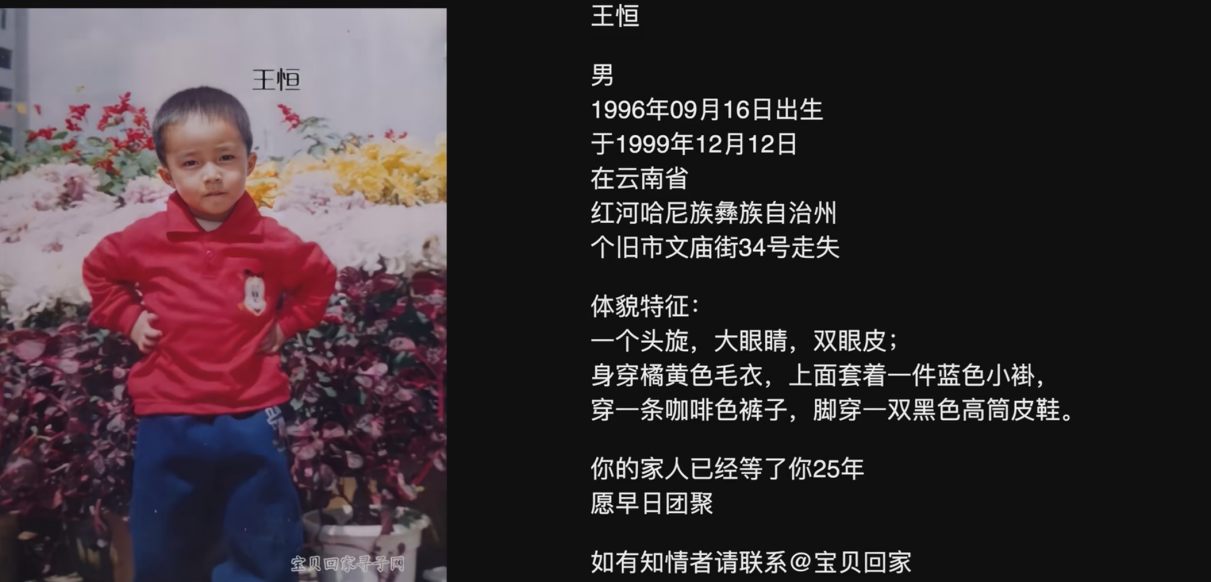
At the end of each episode, there is a missing person notice for a different abducted child.
As a person born in the 1980s and an eyewitness of that era, my parents repeatedly reminded us when I was a child to be wary of strangers because child trafficking and selling were so common at that time. Among my childhood playmates, two were “sold” to our village. The only difference was that they were “sold” by their parents rather than being abducted.
Why was child trafficking so rampant in that era? This is a question that a suspense drama can explore, as it can reveal many "scars" of a specific era. For example, the backwardness of concepts. At that time, many people had a weak legal awareness and insufficient understanding of the harm of child trafficking. Parents prevented their children from being abducted, but were not surprised by villagers "buying" or "giving" children. Another example was that the relevant laws and regulations were not perfect, law enforcement was insufficient, and the cross-regional cooperation mechanism was also not sound. The cost of crime was relatively low, making it difficult to form an effective deterrent. Another example was the severe punishment for family planning and the decadent concept of favoring boys over girls at that time, which drove the demand for child trafficking...
Therefore, the "fight against child trafficking" in the context of the 1980s-2000s is a theme that can be explored in depth. The series repeatedly presents Wang Shitu's "lost orphan" pain, which is indeed very sad and moving, and the miserable situation of Xiaoqi and others in the den of thieves also fully arouses the audience's hatred of the phenomenon of child trafficking... However, "Shadow Boy" stays on the most superficial issues, and it does not explore the reasons for the chaos, whether it is conceptual, law enforcement, or institutional, all of which are missing.
The existence of this defect means that "Shadow Boy" is destined to fail to become a classic work like "The Bad Kids" or "The Silent Truth" that relentlessly explores, analyzes and criticizes human nature.
This is a major oversight of the Misty Theater: they have a good subject but only scratch the surface. The background of the times should not be just a curtain, it should be the driving force behind the story at all times.
Without focusing on the topic of scars of the times, the plots of the first few episodes of Shadow Boy reminded some viewers of Returning Daughter. For a suspense drama, this kind of association is a taboo, and the novelty is mostly lost, and the appeal to the audience is also weakened. However, Shadow Boy cannot avoid the audience's associations - they are all "fake children" who have returned, and there are unspeakable secrets in the family. The most terrifying thing is the father in the family, and there is a "madman" or "fool" in the family. There are undercurrents behind the seemingly harmonious family...
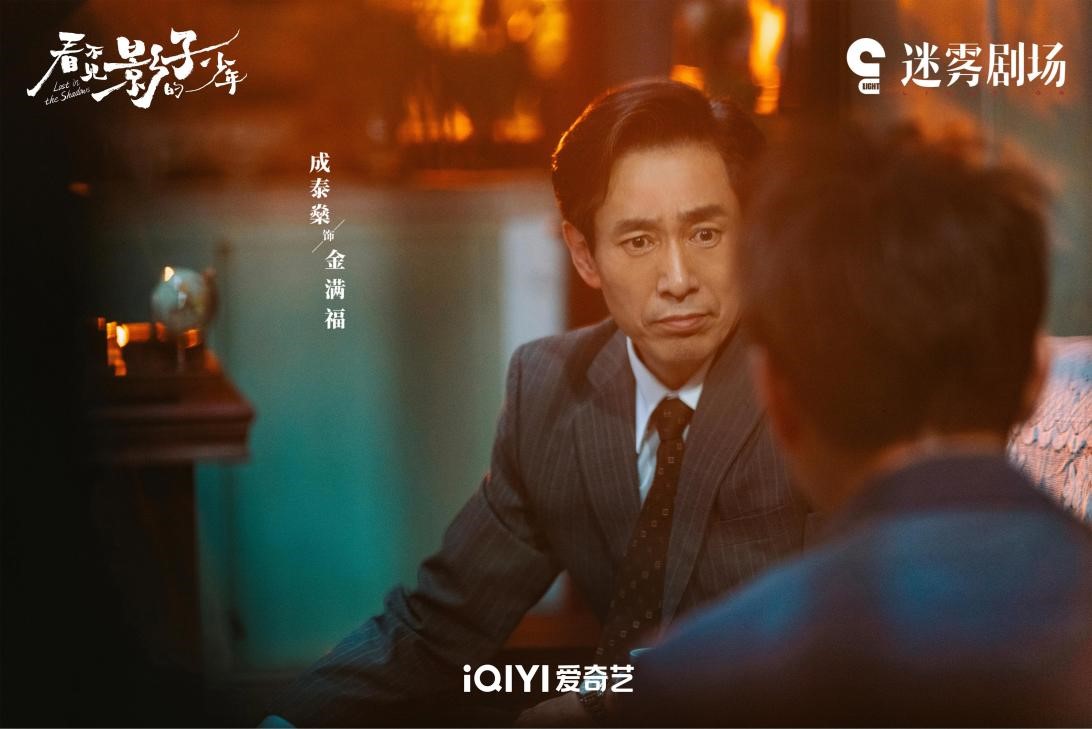
The "terrible" father Jin Manfu (played by Cheng Taishen) is indeed very reminiscent of Li Chengtian played by Wang Yanhui in "The Returning Daughter"
Fortunately, when the plot is halfway through, "Shadow Boy" keeps the audience hooked with continuous suspense points, such as where did Bian Jie go, whether Bian Jie is dead or alive, and where is Dou Dou. Fortunately, there are also regrets. Although the suspense setting of "Shadow Boy" is attractive, its way of solving the suspense is too "muddling".
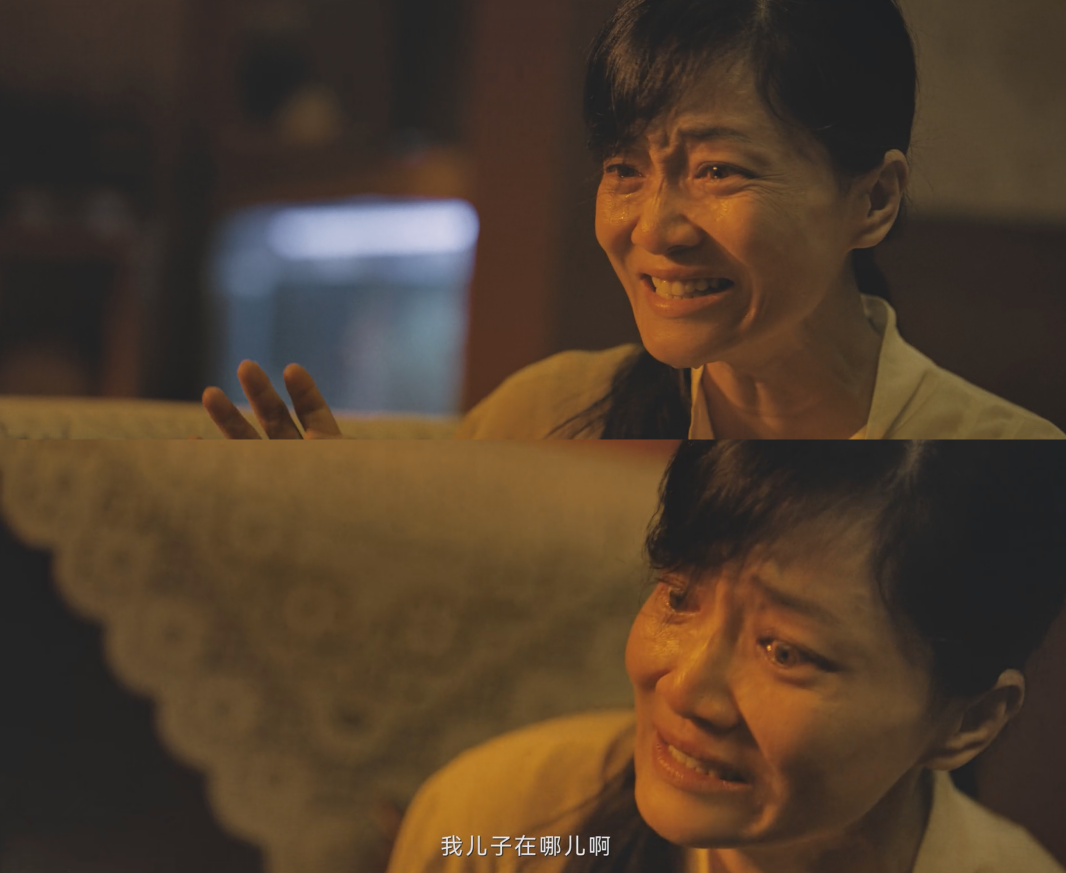
Guo Keyu's performance as the mother who becomes insane due to Bian Jie's disappearance is particularly impressive
As the "first episode" of the previous play said, "Shadow Boy" is "wrapped with elements such as suspense, crime, and murder". It is not just based on blood ties. It is indeed a story with a bit of Keigo Higashino's flavor. Emotion is the motive for crime, and family affection is the motive for atonement.
Of course it does have an effect: the emotion-driven story of crime and redemption involves discussions of morality and ethics; the focus is on the characters' family affection, and the audience may be moved by the complex and profound emotional bonds between the characters; the plot design of the final surrender due to family affection can also convey a positive message, that is, behind the dark side of human nature, there is still the power of love and hope.
If "Shadow Boy" sets the villain's motivation as a deformed desire driven by family affection, and makes the intellectual game between the police and the criminals wonderful, the emotion + suspense can be convincing; the problem is that "Shadow Boy" sets the redemption motivation of every criminal to be exactly the same - family affection, and the game between the police and the criminals is almost non-existent. There is no need for the police to solve the case at all, because the suspects will surrender themselves out of love anyway...
When the solution of suspense depends on emotions, "Shadow Boy" has suspense but no reasoning, almost all coincidences. At the same time, too many emotional scenes (endless flashbacks) dilute the suspense atmosphere, making the series look more like a sad drama under the suspense shell.
The Fog Theater should return to the original intention of suspense: reasoning! The core charm of suspense dramas lies in logical reasoning and the process of solving puzzles. The audience expects to enjoy the fun of uncovering the secrets through clue collection and logical analysis. No matter how profound your social criticism, human observation, or how warm your core is, at least the reasoning clues must be linked together, logically self-consistent, and fascinating.
The 16-episode film "Shadow Boy" is not long, but it feels very long. I don't know whether the length was set to 16 episodes in advance, so the editor had to fill the content, or whether the editor wanted to be too fancy in the form. In short, the editing of "Shadow Boy" is not satisfactory and the rhythm is problematic.
The show's excessive preference for non-linear editing is incomprehensible. According to the normal time sequence, an event occurs in 1-2-3-4, but the editing method of many bridges in "Shadow Boy" is 1-3-2-4. The proper use of non-linear editing does have a good artistic effect. Covering up some key information can stimulate the audience's curiosity and keep the audience highly involved; by adjusting the order of events, some key information can be highlighted, allowing the audience to have a deeper emotional resonance when understanding the cause and effect.
Despite this, "Shadow Boy" uses too much non-linear editing. Important and unimportant information is suddenly given to you in the form of 1-3-2-4, or even 1-3-2-5-6-7-4, frequently disrupting the time sequence, resulting in the loss of the coherence and fluency of the story, adding redundant plots, and increasing the audience's understanding cost of the plot, affecting the viewing experience.
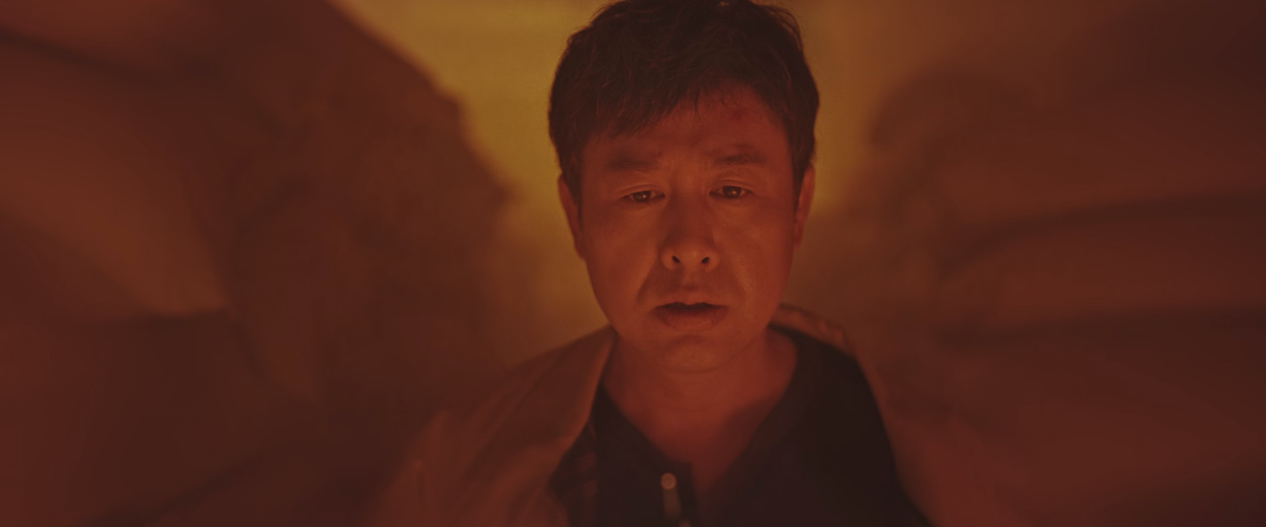
The emotionally tense scene where Wang Shitu sees his wife and children in a hallucination was edited to pieces.
To make matters worse, the series takes emotions as its core, and a large number of flashbacks of emotional scenes take up a large amount of space, making the effective information in some episodes pitifully small.
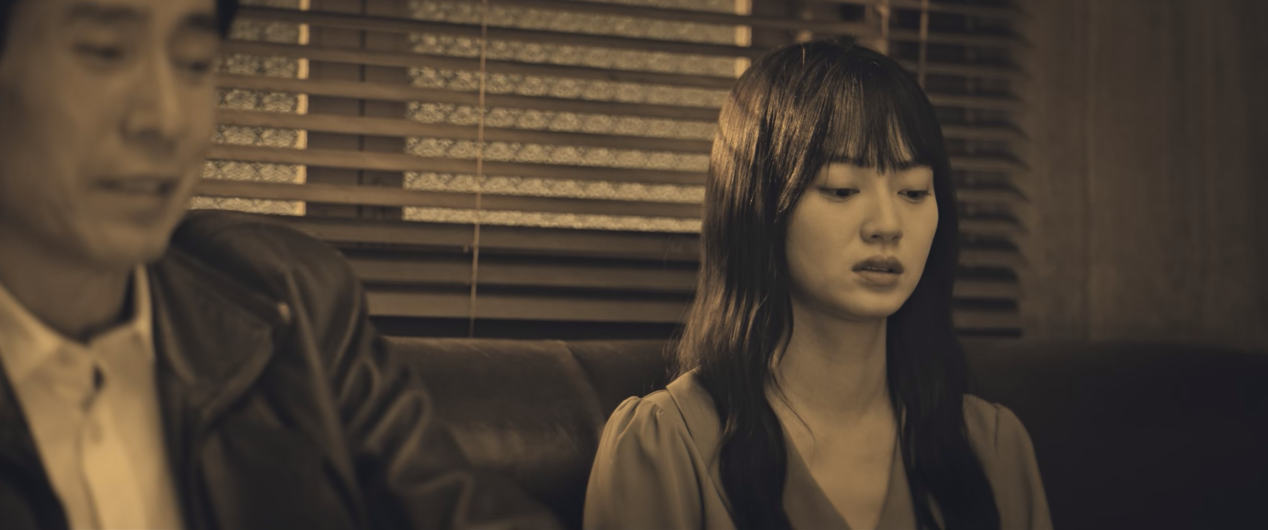
Various long flashbacks, not limited to black and white shots
In the past, suspense short dramas were mainly 12 episodes long. The 16-episode "Shadow Boy" can be edited into 10-12 episodes to improve the rhythm and make the viewing experience much better.
It is true that those high-scoring suspense short plays have a high-level texture. Not only are the stories interesting and profound, but they also put a lot of effort into the narrative structure, visual style, sound effects and music, so that the audience can feel the suspenseful texture at a glance. However, the form should serve the content. Nowadays, many suspense dramas have a bad tendency. In order to create a mysterious atmosphere, there are too many twists and turns in advancing the main plot and revealing the core theme. The key clues and plot twists are too scattered, which affects the overall narrative rhythm and tension.
Remember, "mystification" will not make an ordinary story profound; overly complicated artistic forms or technical means will harm the audience's experience if they interfere with the smoothness and enjoyment of the story.
To some extent, "Shadow Boy" exposes a common problem of today's Mist Theater: the lack of ability to tell a good story. A "good story" must at least be logically rigorous, coherent, and fascinating. On this basis, if there is a deeper social criticism and analysis of human nature, it will be icing on the cake; to "tell" a "good story well", the narrative should be efficient and compact, concise and powerful, and the form should serve the content.
Whether it is Misty Theater or iQiyi, they definitely want to make good content. Perhaps because of the many hits in the past two years, they are a bit too confident or narcissistic, and pursue too much "high-end" images. But in fact, it is not just a boutique short play, but any play. The first priority is to tell a good story. For any narrative art, the story is a bridge connecting the creator and the audience. If you can't provide a solid and good story that attracts the audience, even the most advanced form may become a mere decoration.
